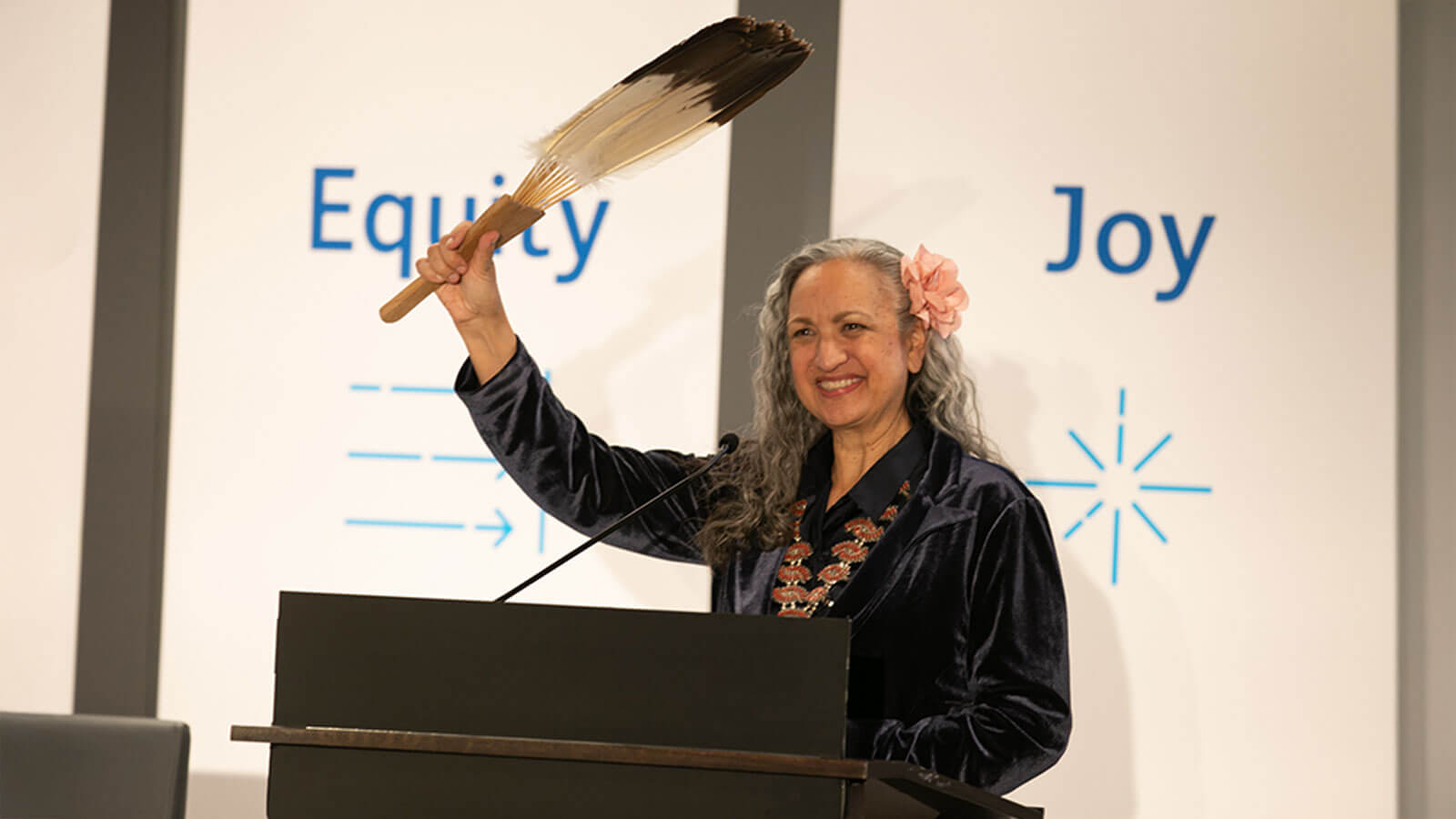Pfizer Colleagues Celebrate Native American Heritage

Earlier this year, as part of our efforts to foster diversity within our walls just as strongly as we fight for health access for patients all over the world, Pfizer held an event celebrating the culture of our Indigenous colleagues.
Organized by our internal Global Indigenous Community colleague resource group, the “Indigenizing Breakthrough Innovations” cultural celebration was held during Native American Heritage Month.
“If you want to be an ally to the native and Indigenous communities in the United States and around the world, you must learn about their history, experiences, and their cultures,” Ramcess Jean Louis, Pfizer’s Chief Diversity, Equity, and Inclusion Officer, remarked during a global broadcast in recognition of Native American Heritage Month.
During the event, colleagues heard from Dr. Siobhan Wescott, Director of the American Indian Health Program at the University of Nebraska College of Public Health, whose work centers around the healthcare needs of Indigenous communities.
She explained a major challenge is the underrepresentation of Native Americans in the medical field, noting less than 1% of physicians in the U.S. identify as American Indian or Alaska Native. She called for more indigenous representation in research, development, and patient care and suggested ways to achieve that.
Partner to achieve breakthrough innovations.
“Doctors Without Borders had never been to the U.S. until COVID, when they came to New York City, and they came to the Navajo Nation. This was quite disturbing, but it also shook things up in a good way,” she said.
Address health disparities.
“Native Americans, before the pandemic, had more preexisting conditions and already had the shortest lifespan of any race that's recorded in the U.S., and they fell the furthest,” she said. “So now, if you look at 2021 data, comparing Asian Americans with American Indians and Alaska Natives, [life expectancy differs by] almost 20 years, which is the definition of a generation. That means not meeting your grandkids or great grandkids; it's not carrying on the traditions.”
Build trust to overcome hesitancy to engage with outsiders.
“Ultimately, native people want to be involved. They want things to get better,” she explained. “They just can't see a path forward. So, if you come in in the right way, with respect and give the process time, you'll get there.”
Pfizer's cultural celebration honoring our Indigenous colleagues was a powerful reminder of the importance of diversity and inclusion in the healthcare industry. Driven by our commitment to health access for all, we recognize the need to address the underrepresentation of Native Americans in the medical field and work towards achieving breakthrough innovations together. As we strive to address health disparities and build trust within Indigenous communities, we must approach engagement with respect and patience. By learning from their history, experiences, and cultures, we can forge a path forward that ensures a brighter and healthier future for all.
05.08.2025
05.05.2025
04.29.2025
04.28.2025
04.24.2025
